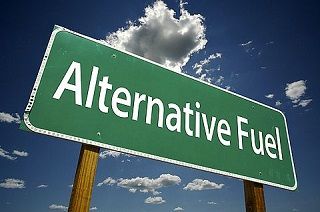Comment on the Alternative-fuel Movement in the Automotive Industry

Per the article linked above:
DME mirrors the performance qualities and energy efficiency of diesel, but burns clean without producing soot. It can be made from a variety of sustainable domestic sources, as well as from North America’s abundant supply of natural gas. Therefore, it has the potential to significantly reduce the nation’s energy dependency.
All completely true. And I suppose it’s to be predictable that the world would be developing dozens of different fuels, just like we had personal computers with different (long-ago-defunct) operating systems in the 1980s.
But for a planet on which the demand for fuel is increasingly causing war, disease, and dozens of forms of environmental ruin, it seems a shame that we as a civilization are not asking ourselves a simple question: What makes sense here, and what doesn’t?
I often write about how the “hydrogen economy” is built upon misunderstandings of basic science, and my ideas are mirrored by thousands of energy experts all over the world. But sadly, that doesn’t seem to stop anyone from pursuing this folly.
So what about DME? I don’t know, but it seems unlikely that anyone will even remember the name a few years hence.
